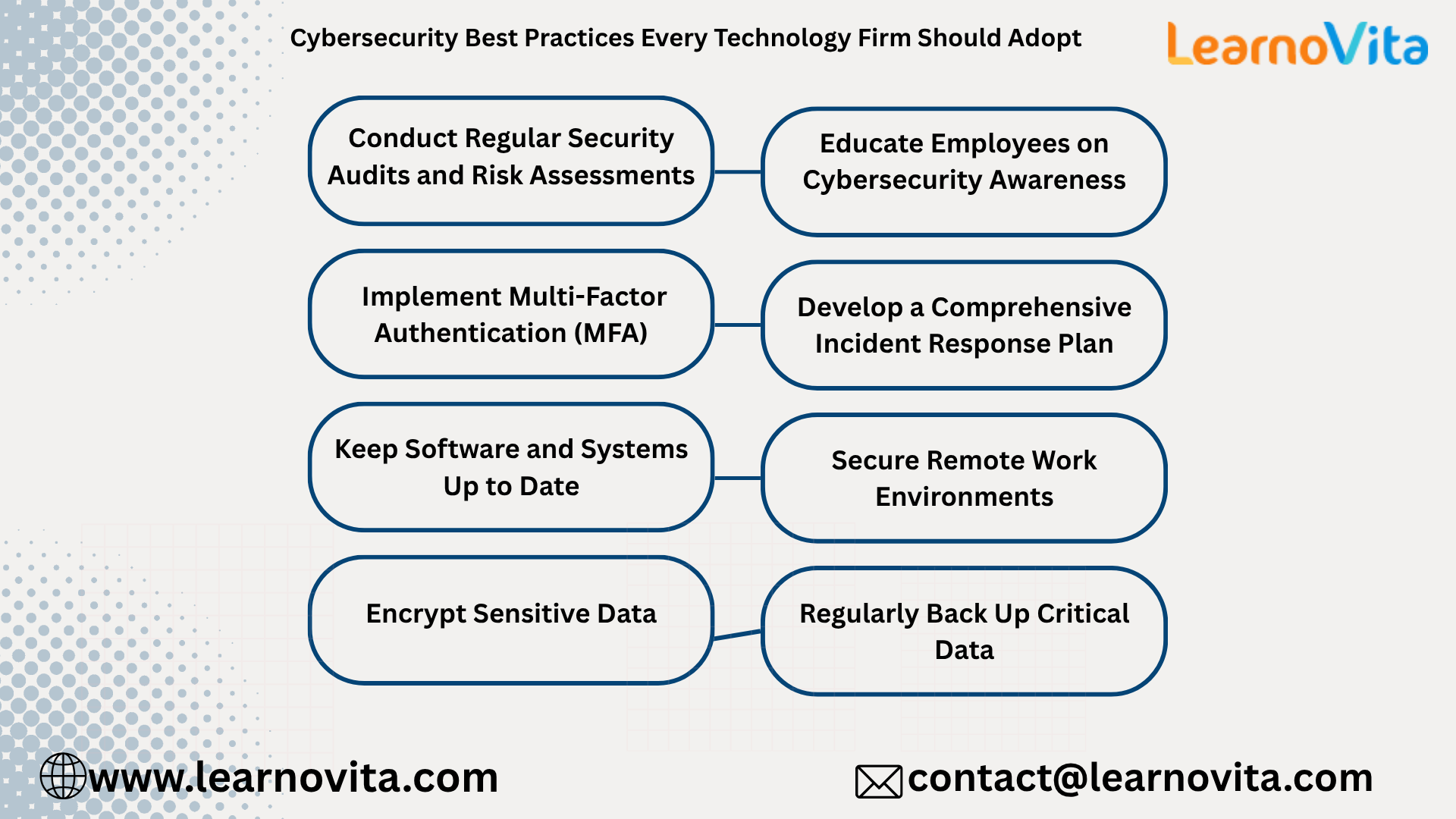Practical Cybersecurity Measures for Tech Industry Success

As technology evolves, so do cyber threats. Today’s hackers are smarter, faster, and more determined than ever, making cybersecurity a top priority for every technology firm. From data breaches to ransomware and phishing scams, the risks are real and the consequences can be severe. To stay protected and earn client trust, tech companies must take a proactive approach to cybersecurity course in bangalore. Here are essential best practices to follow.
1. Conduct Regular Security Audits
The first step toward strong cybersecurity is understanding your weaknesses. Regular audits and risk assessments help uncover vulnerabilities in your systems and networks, so you can fix them before attackers find them.
2. Use Multi-Factor Authentication (MFA)
Strong passwords are good, but MFA makes them even better. By requiring an extra step like a one-time code or biometric verification MFA drastically reduces the chances of unauthorized access.
3. Keep Everything Updated
Outdated software is an open invitation to hackers. Regularly update your systems, applications, and security tools to patch vulnerabilities and keep your defenses strong.
4. Encrypt Sensitive Data
Data encryption turns information into unreadable code, making it useless to anyone who doesn’t have authorization. Whether it’s client data, financial details, or internal communication, encryption is a must.

5. Train Your Employees
Your employees are your first line of defense and sometimes your weakest link. Regular cybersecurity online training helps them spot phishing emails, suspicious links, and other red flags that could lead to breaches.
6. Have an Incident Response Plan
Even with the best protection, no system is foolproof. A clear incident response plan ensures your team can act fast, contain threats, and recover quickly when something goes wrong.
7. Secure Remote Work
With remote work now the norm, securing offsite connections is crucial. Protect home networks and devices with VPNs, endpoint security, and clear remote access policies.
8. Back Up Data Regularly
Frequent, secure backups protect your business from data loss caused by ransomware or accidental deletion. Regular testing ensures your backups can be restored when needed.
Conclusion
Cybersecurity isn’t just about avoiding attacks it’s about building trust and resilience. By implementing these best practices, technology firms can safeguard data, reduce risks, and strengthen their reputation. In a world where digital threats never sleep, staying secure is the smartest business move you can make.
- Questions and Answers
- Opinion
- Motivational and Inspiring Story
- Technology
- Live and Let live
- Focus
- Geopolitics
- Military-Arms/Equipment
- Seguridad
- Economy
- Beasts of Nations
- Machine Tools-The “Mother Industry”
- Art
- Causes
- Crafts
- Dance
- Drinks
- Film/Movie
- Fitness
- Food
- Juegos
- Gardening
- Health
- Home
- Literature
- Music
- Networking
- Other
- Party
- Religion
- Shopping
- Sports
- Theater
- Health and Wellness
- News
- Culture

